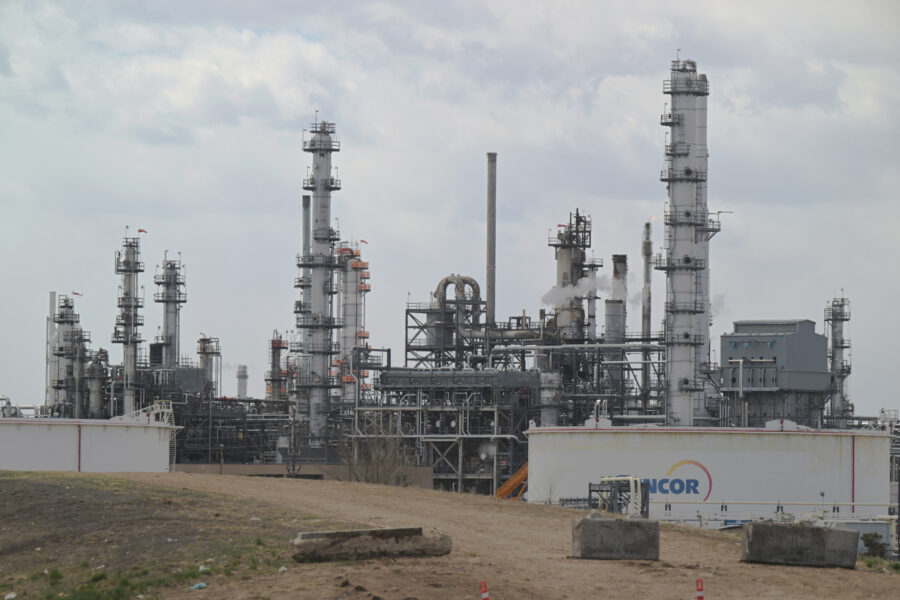March has brought a string of setbacks for Canada’s struggling tar sands oil industry, including the further delay of two proposed pipelines, a poor forecast for growth and signs that investors may be growing wary.
On Friday, a federal appeals court in California refused to lift a lower court order that blocks construction of the Keystone XL pipeline until a thorough new environmental assessment is completed. The decision likely pushed back by a year the start of major work by TransCanada, Keystone XL’s owner, to complete the project.
The same day, ExxonMobil affiliate Imperial Oil said it was delaying a new tar sands project in Alberta, likely by a year.
Those setbacks followed an earlier announcement by Enbridge, another pipeline operator, that it would delay the completion of its Line 3 expansion through northern Minnesota by a year, to late 2020. That project is one of two other major pipelines planned to carry oil out of Canada’s tar sands, also called oil sands.
While western Canada’s production grew slowly but steadily in recent years, companies struggled to complete new pipelines. Opposition from climate activists and indigenous groups, slow regulatory processes and volatile oil prices have led to a series of delays and cancellations.
The effect has been to weaken the prospects of future growth in tar sands production and to drive away investors.
Last year, the provincial government in Alberta—home to nearly all of Canada’s tar sands—said it would curtail production this year in an effort to steady the market. By constraining supply, government officials hoped to boost prices that had been pushed down as companies struggled to export their oil. The government said the move was temporary, and at the time it expected Enbridge’s Line 3 to ease pressure in late 2019. With that project’s start date now pushed back by a year, and with Keystone XL likely delayed too, investors are growing jittery about Canada’s oil sector.
“They want stability, they’re looking for sign posts,” said Kevin Birn, an analyst with IHS Markit in Canada. But the only signs so far have been continued uncertainty, he said, and it’s having an effect. “For oil sands, we’re seeing the lowest investment in 15 years.”

The developments are beginning to affect the industry’s outlook. The International Energy Agency said last week that it expects Canadian oil output, which is dominated by tar sands, to grow only marginally to 2024, to 5.5 million barrels per day. A year earlier, the IEA had projected growth to 5.6 million barrels a day by 2023. The agency said that the industry needed at least two of the three proposed pipelines to be completed in order to accommodate growth, but said the outlook is “precarious.”
The long-delayed completion of the Keystone XL northern leg was stymied last year when a lower court ruled that the Trump administration had violated federal law by failing to conduct a new environmental review when it revived the pipeline, which had been blocked by the Obama administration. The Trump administration and TransCanada Corp., the company behind the project, appealed the lower court’s ruling, but the decision on Friday by a 9th Circuit U.S. Court of Appeals panel means construction cannot begin until that appeal is resolved, later this year at the earliest.
In a statement, TransCanada spokesman Terry Cunha said “we are currently assessing the decision and considering our options moving forward.”
The third pipeline, the proposed Trans Mountain expansion, which would increase capacity of an existing line that runs to the Pacific, has faced opposition from some indigenous First Nations groups and from British Columbia and is embroiled in legal battles. Enbridge, meanwhile, faces sustained opposition from activists and a challenge to its permitting from a state agency in Minnesota, which must sign off on the Line 3 project.
As for Keystone XL, Josh Axelrod, with the Natural Resources Defense Council’s Canada project, said that in addition to the federal lawsuit, Transcanada is awaiting a ruling on a case in state court that’s challenging the project’s permit in Nebraska. The company will also have to get permitted under the Clean Water Act to cross Missouri River, and will face potential lawsuits and opposition along the way.
“Then there’s the unknown factor of civil disobedience which is expected to be pretty significant, when and if construction begins,” he said. “It’s really a three pipeline story, not a one pipeline story, and delaying these pipelines is working. The industry’s growth is slowing.”
About This Story
Perhaps you noticed: This story, like all the news we publish, is free to read. That’s because Inside Climate News is a 501c3 nonprofit organization. We do not charge a subscription fee, lock our news behind a paywall, or clutter our website with ads. We make our news on climate and the environment freely available to you and anyone who wants it.
That’s not all. We also share our news for free with scores of other media organizations around the country. Many of them can’t afford to do environmental journalism of their own. We’ve built bureaus from coast to coast to report local stories, collaborate with local newsrooms and co-publish articles so that this vital work is shared as widely as possible.
Two of us launched ICN in 2007. Six years later we earned a Pulitzer Prize for National Reporting, and now we run the oldest and largest dedicated climate newsroom in the nation. We tell the story in all its complexity. We hold polluters accountable. We expose environmental injustice. We debunk misinformation. We scrutinize solutions and inspire action.
Donations from readers like you fund every aspect of what we do. If you don’t already, will you support our ongoing work, our reporting on the biggest crisis facing our planet, and help us reach even more readers in more places?
Please take a moment to make a tax-deductible donation. Every one of them makes a difference.
Thank you,














